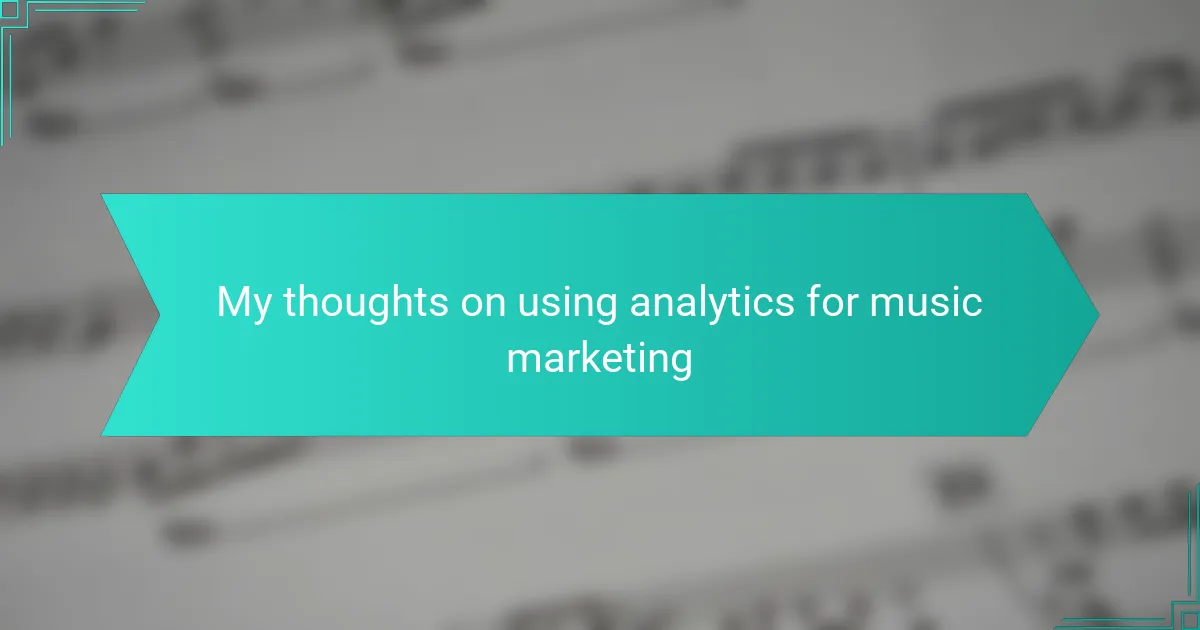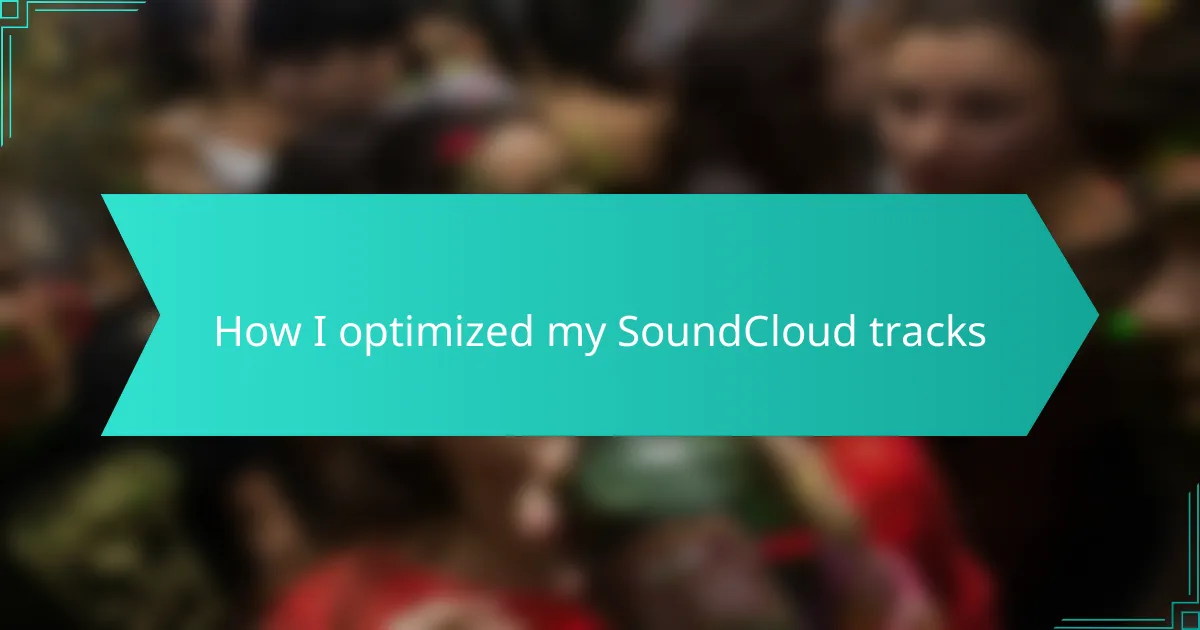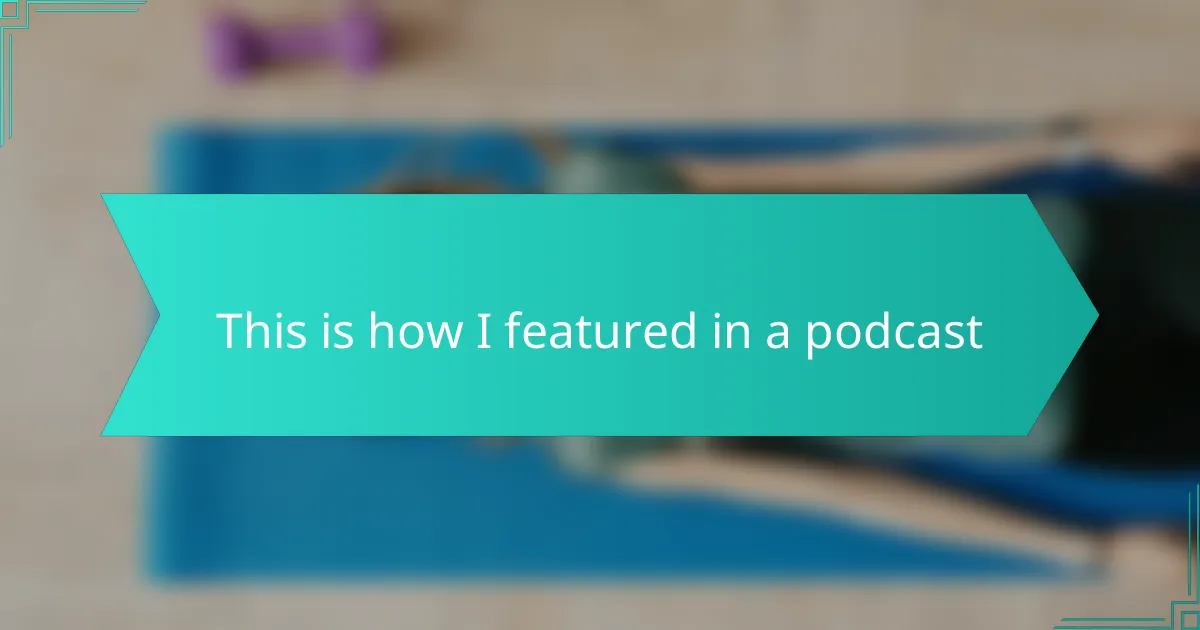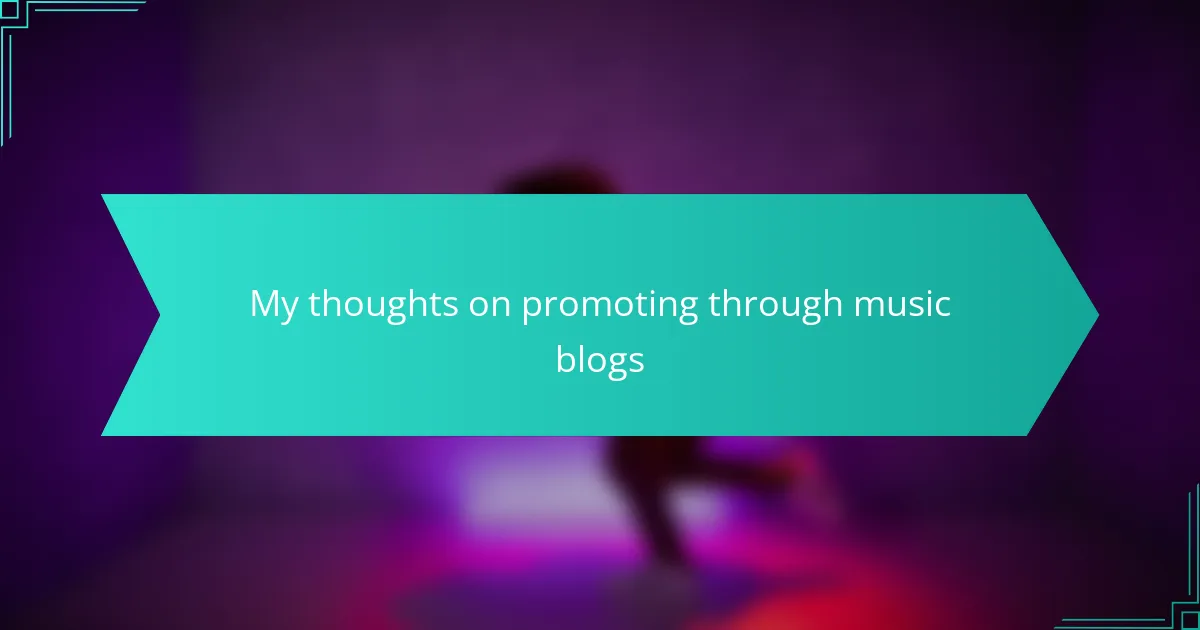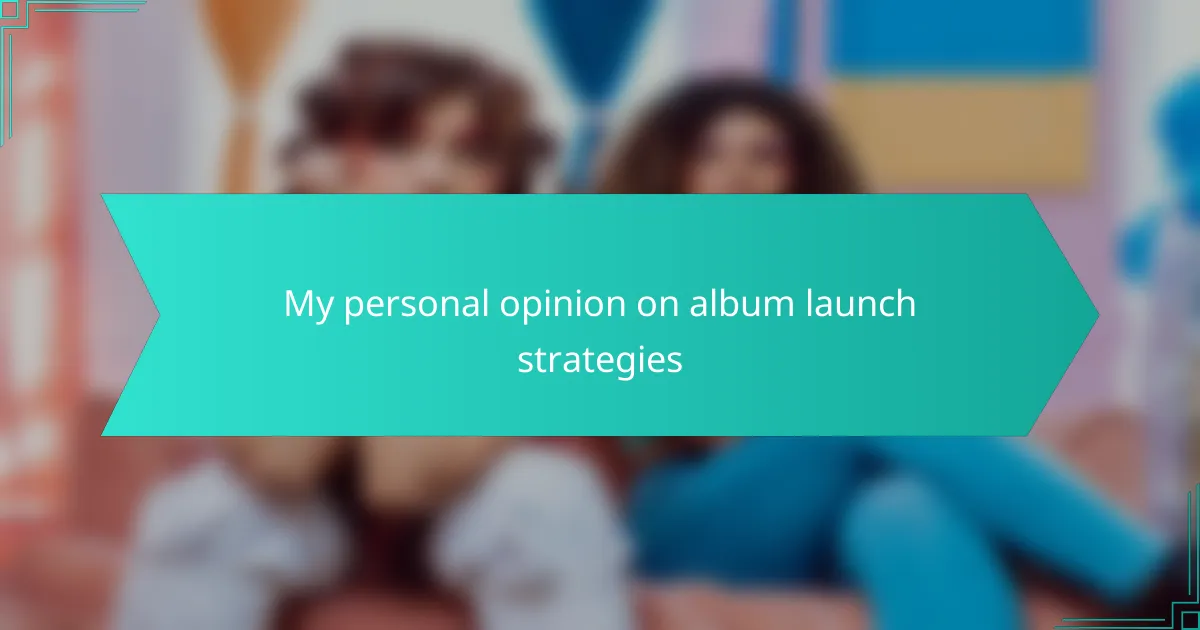Key takeaways
- Music marketing analytics provide valuable insights into listener behavior, helping artists refine their strategies and enhance audience engagement.
- Utilizing tools like Spotify for Artists and Apple Music for Artists allows musicians to access real-time data on streams and demographics, informing content creation and promotional efforts.
- Engaging with audience feedback and analytics fosters deeper connections, transforming data into narratives that resonate with fans.
- Effective marketing campaigns rely on understanding your audience, creating engaging content, and continuously analyzing and adapting strategies for maximum impact.
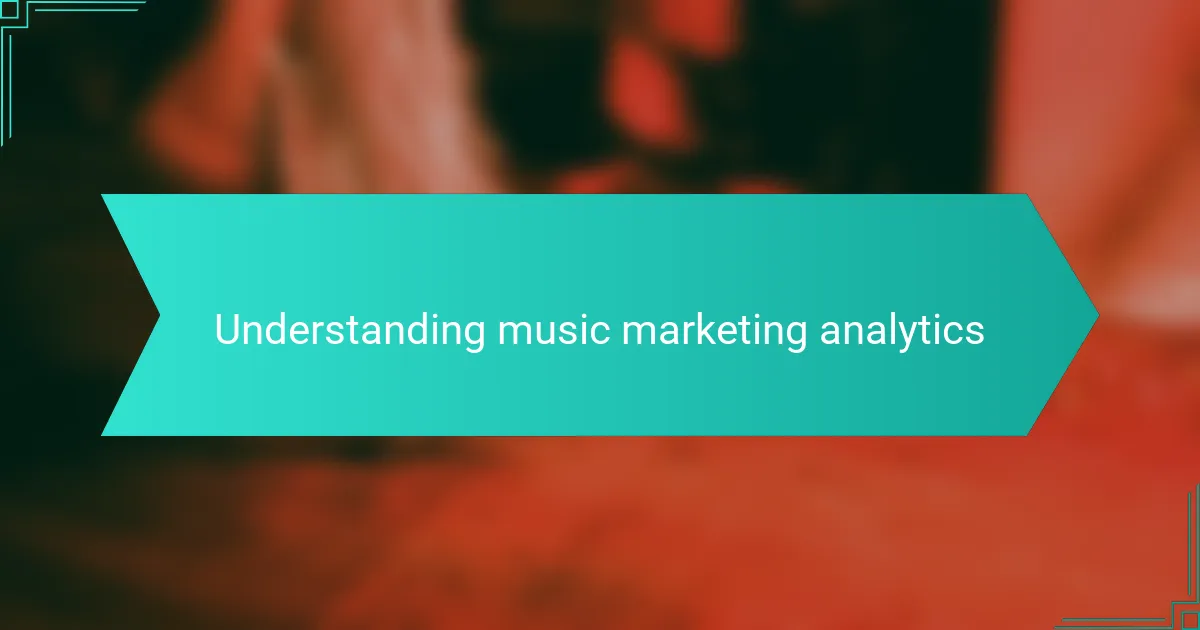
Understanding music marketing analytics
Understanding music marketing analytics is crucial for today’s artists. From my experience, analytics can provide insights into listener behavior, helping you understand what resonates with your audience. It’s fascinating to see the data behind your streams and engagement; it’s like having a roadmap that guides your marketing decisions, allowing me to reach fans more effectively.
One of the most powerful aspects of music marketing analytics is the ability to track campaigns in real-time. I remember launching a single and monitoring its performance through different platforms. Seeing which promotional strategies led to more streams was enlightening. It prompted me to refine my approach and focus on the techniques that truly work.
Incorporating analytics can sometimes feel daunting, but it’s all about interpreting the data in a way that informs your creativity and strategy. You can connect the dots between what data suggests and how it aligns with your artistic vision. By using these insights thoughtfully, I found I could make more impactful decisions in my music career.
| Type of Analytics | Description |
|---|---|
| Streaming Metrics | Tracks the number of streams, listeners, and playlist placements. |
| Social Media Engagement | Measures likes, shares, comments, and follower growth on platforms. |
| Email Campaign Data | Analyzes open rates, click-throughs, and subscriber interactions. |
| Website Analytics | Tracks visitor behavior on your music site, including traffic sources and page views. |
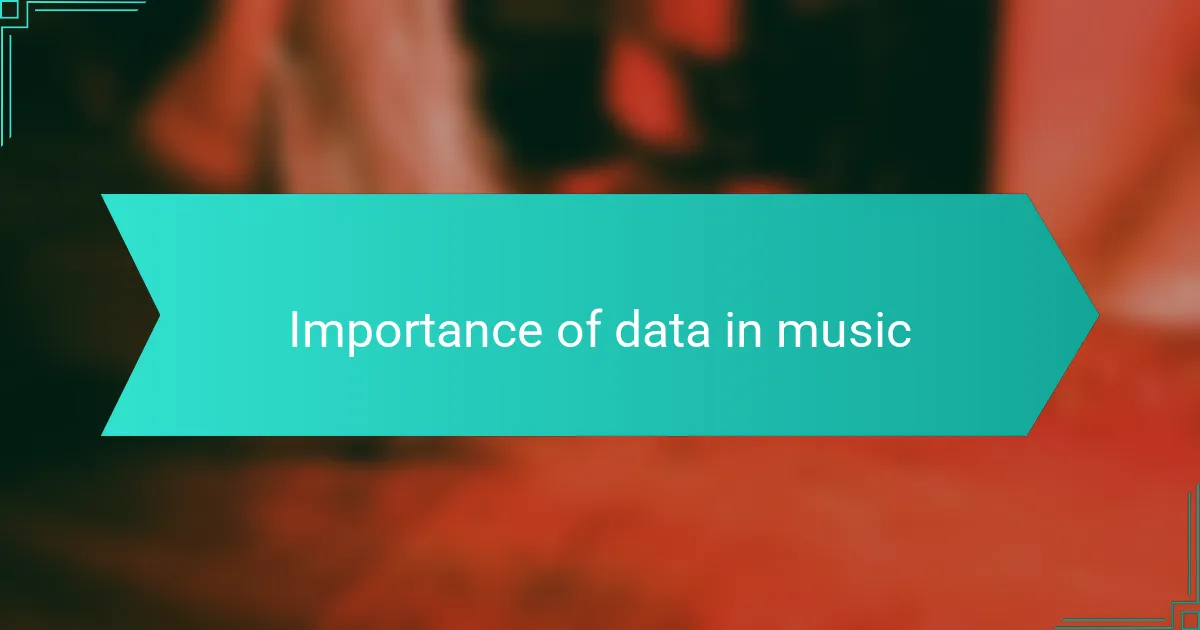
Importance of data in music
Understanding the importance of data in music has been a game-changer for my career. When I first started, I relied mostly on instinct and creativity to generate buzz around my music. However, as I began to integrate analytics into my marketing strategy, I noticed a significant shift—my engagement increased, my audience grew, and I started to connect more authentically with listeners.
Data helps to pinpoint what resonates with fans, allowing artists to refine their sound and marketing tactics. From tracking streaming numbers to examining social media interactions, every piece of data provides insight into audience preferences. By analyzing this information, I could make informed decisions that led to enhanced promotional efforts and a deeper understanding of my audience’s needs.
- Identifies trends in listener behavior.
- Helps tailor marketing campaigns to specific demographics.
- Informs decisions on when and where to release new music.
- Tracks the effectiveness of promotional strategies.
- Reveals audience engagement levels with different music styles or content.
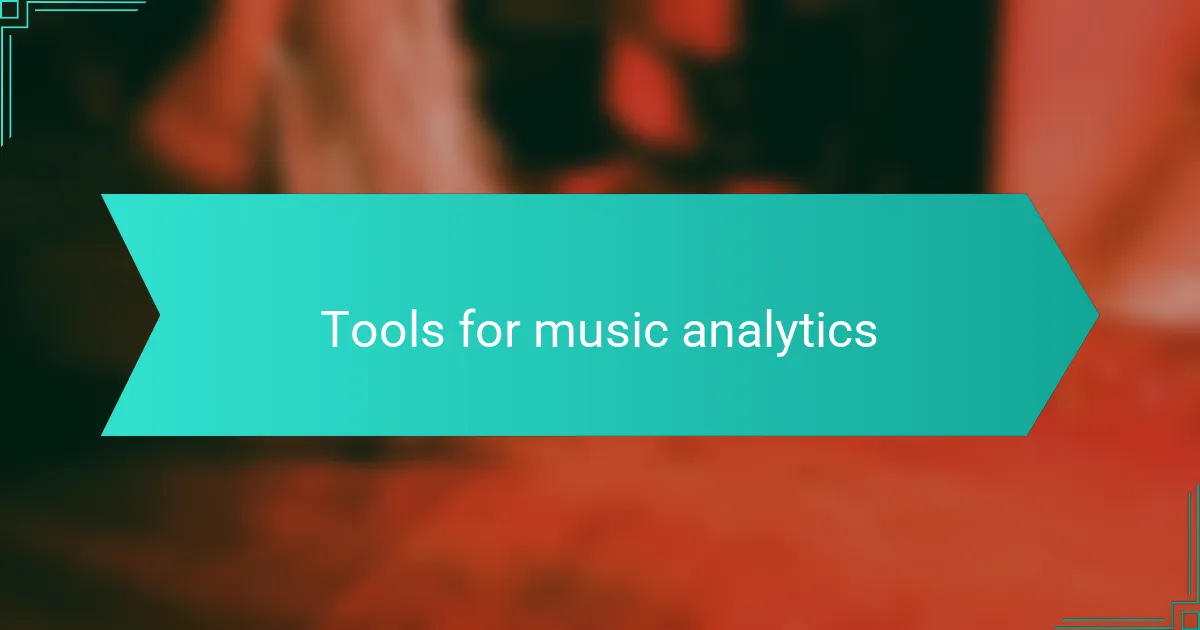
Tools for music analytics
When diving into music analytics, I’ve found that the right tools can make a world of difference. Using platforms like Spotify for Artists or Apple Music for Artists allows musicians like us to see real-time data about our listeners. I remember the excitement I felt when I first accessed my audience demographics; it was a turning point that helped me tailor my music more effectively.
Here’s a list of some valuable tools for music analytics that I recommend based on my personal experiences:
- Spotify for Artists: Offers insights on streams, demographics, and playlist placements.
- Apple Music for Artists: Tracks listening habits and provides data on where your music is being played.
- Soundcharts: Monitors social media engagement and radio airplay.
- Chartmetric: Combines a variety of metrics to provide a comprehensive look at your performance.
- Google Analytics: Essential for understanding how fans interact with your website and social media.
Utilizing these tools not only enhances your marketing strategy but also deepens your connection with your audience.
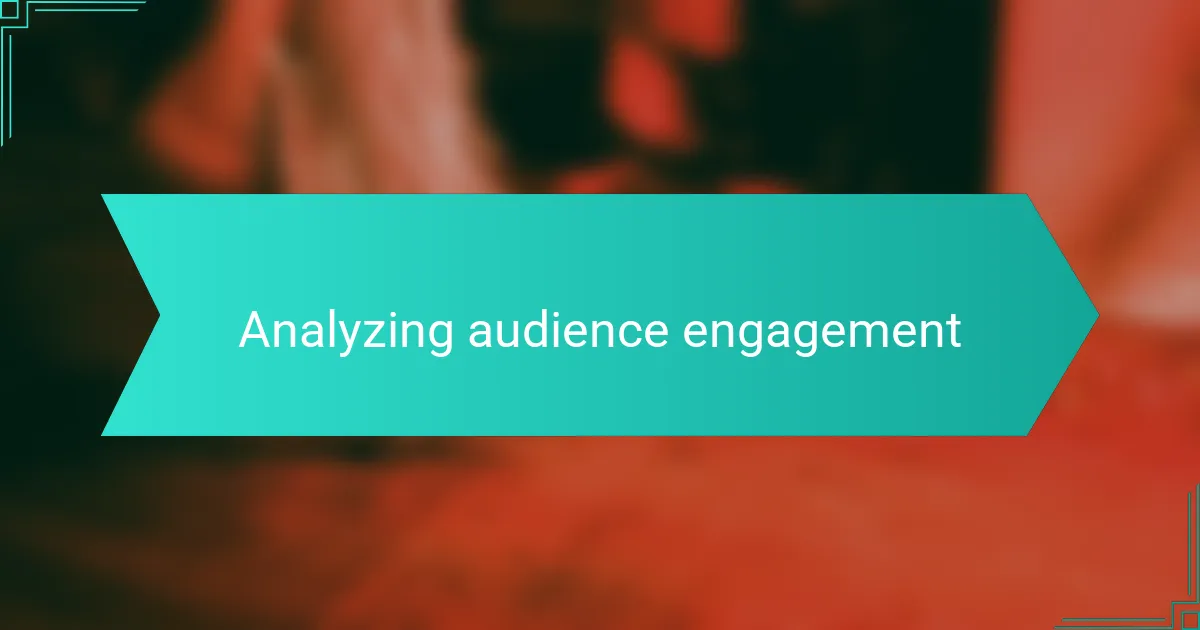
Analyzing audience engagement
Analyzing audience engagement is like discovering hidden patterns in a beautiful piece of music. When I first started exploring my listener data, I was surprised to see how different tracks appealed to various segments of my audience. For instance, I noticed a certain demographic responded well to upbeat songs, while others gravitated towards my more introspective work. It made me think—what if I could create tailored content for these different groups?
One specific moment stands out to me; after releasing a music video, I delved into the engagement metrics on social media. The comments and shares spoke volumes about what captivated my fans. I found it fascinating that a simple lyric or visual could spark such a lively conversation. It highlighted the importance of not just looking at numbers but understanding the stories behind them. How amazing is it that analytics can transform mere numbers into a deeper narrative about your audience?
The journey of analyzing engagement doesn’t stop at just gathering data. I’ve learned to actively listen to the feedback and interactions unfolding around my music. For example, a recent mailing list campaign revealed which songs resonated most with subscribers, leading me to prioritize those when planning future releases. Engaging with analytics isn’t merely about tracking success; it’s about fostering connections that enhance both my music and audience experience. How can we use this knowledge to create even more meaningful engagement? The possibilities are endless!
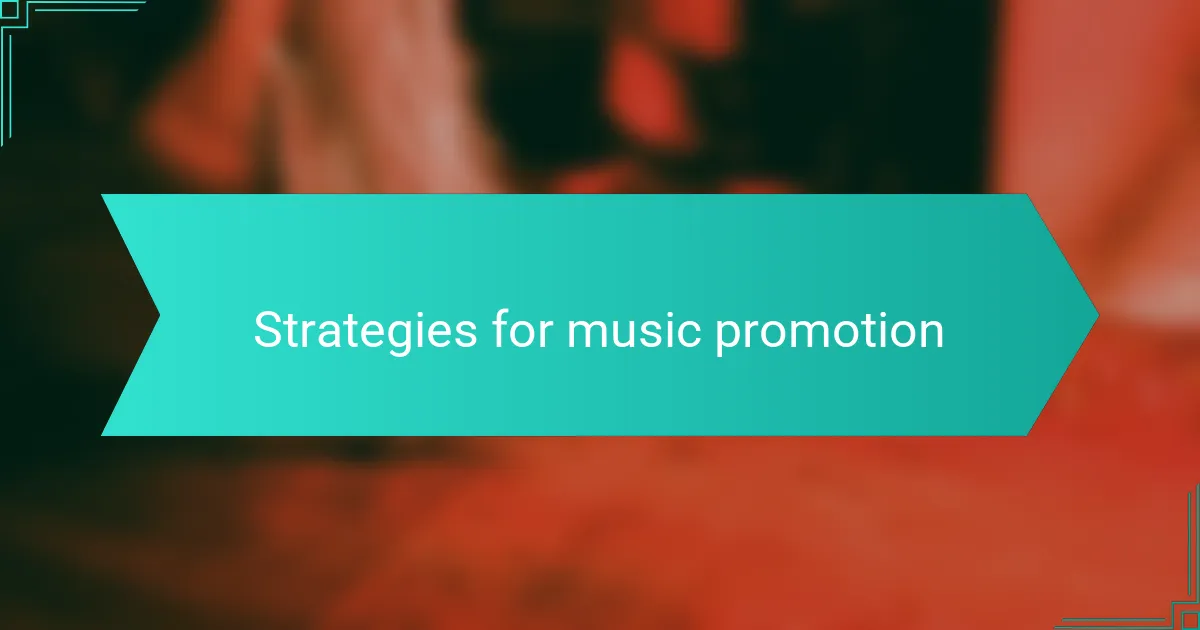
Strategies for music promotion
When it comes to music promotion, leveraging analytics truly makes a difference. I remember when I first started promoting my music. I was overwhelmed by options, but once I began analyzing listener data, everything clicked into place. Understanding where my fans were coming from and which songs resonated most helped me tailor my promotions effectively.
Engaging with analytics doesn’t just help target your audience; it also informs what type of content to create next. For instance, a spike in streams from a particular demographic suggests I should focus more on that sound or theme in future releases. I’ve found that deepening my connection with fans based on data not only strengthens loyalty but also enhances my creative process.
Here’s a table comparing different strategies for music promotion using analytics for better insights:
| Strategy | Description |
|---|---|
| Social Media Analytics | Track engagement metrics to understand what content resonates with your audience. |
| Streaming Data | Analyze song performance across platforms to identify your most popular tracks and audiences. |
| Email Marketing Metrics | Use open and click rates to optimize future campaigns and engage your fanbase effectively. |
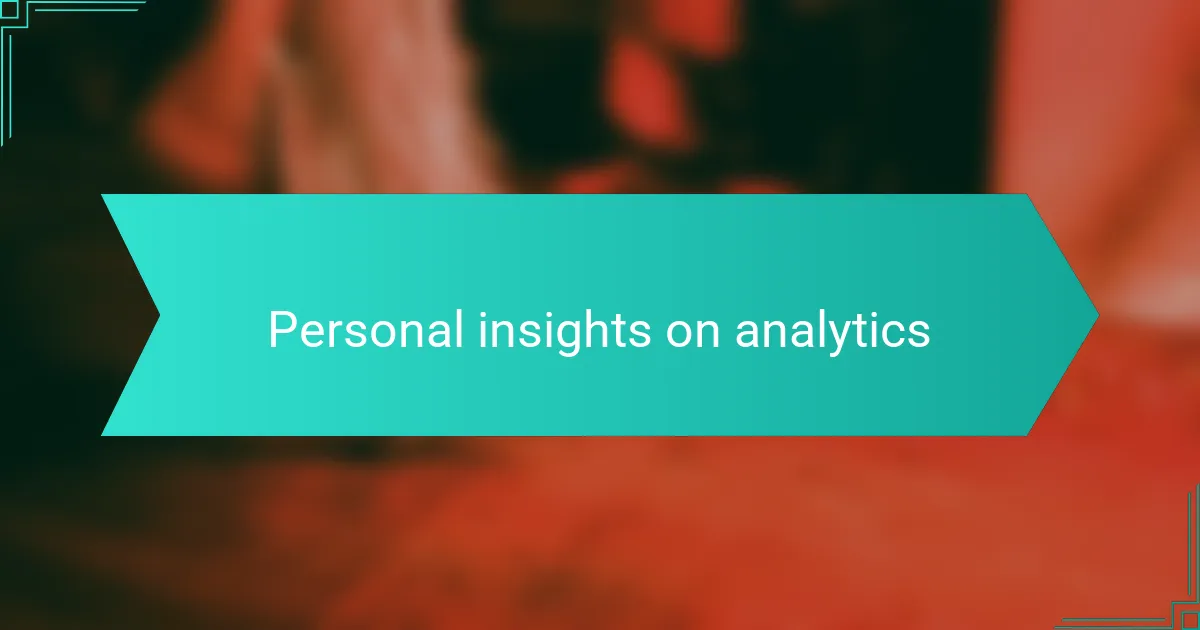
Personal insights on analytics
Using analytics in music marketing has transformed how I approach my career. I remember when I released my first EP and had no idea who was listening or where my audience was. Now, by diving into platforms like Spotify for Artists or social media insights, I can tailor my promotions based on real data. For example, identifying which cities have the most listeners allows me to plan targeted tours.
Understanding patterns in listener behavior has opened my eyes to the nuances of music marketing. When I saw that my song performed exceptionally well among a specific age group, it inspired me to engage more with that demographic on social media. It’s amazing how data can fuel creativity and strategic decisions.
The emotional insight comes from connecting with my audience. Analytics aren’t just numbers; they represent real people who resonate with my music. Seeing geographical data makes me feel connected to fans, transforming figures into faces.
| Type of Analytics | Benefits |
|---|---|
| Streaming Data | Identify listener demographics and geographical trends |
| Social Media Insights | Gauge engagement and optimize content strategy |
| Sales Data | Understand purchasing behavior and merch effectiveness |
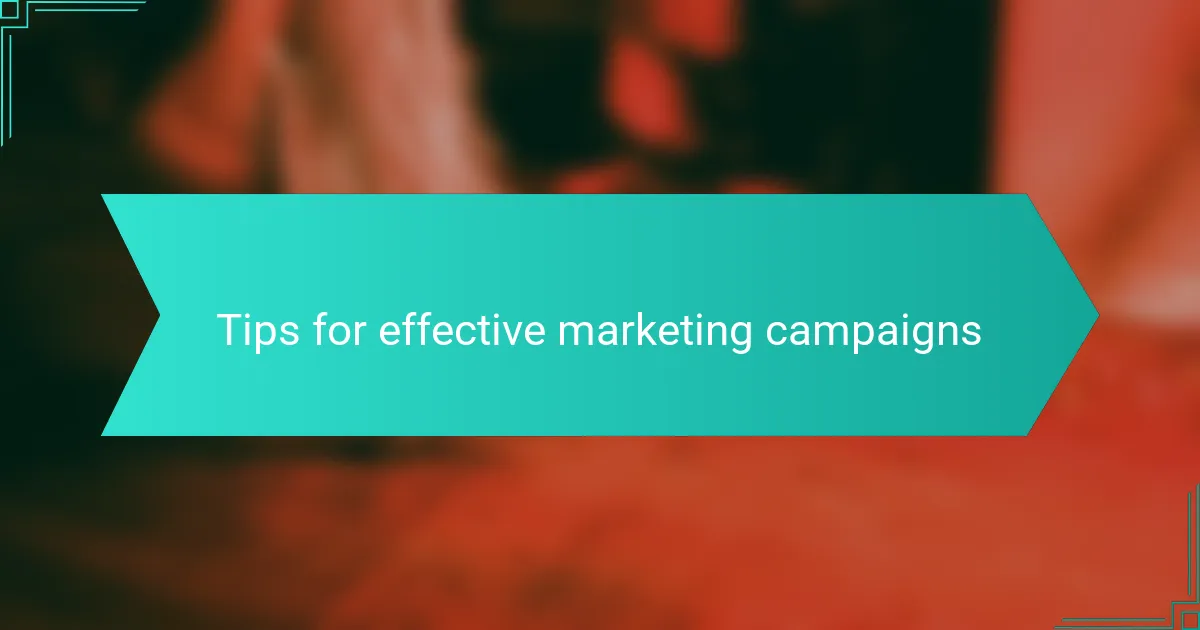
Tips for effective marketing campaigns
When I think about effective marketing campaigns for musicians, I always return to the importance of knowing your audience. Understanding who connects with your music allows you to tailor your campaigns directly to them, making your efforts feel much more personal. I’ve experienced firsthand how targeting the right demographic can lead to increased engagement and, ultimately, more fans.
To ensure your music marketing campaigns are effective, consider these tips:
- Utilize analytics tools: Use platforms like Spotify for Artists and social media insights to track listener behavior.
- Create engaging content: Develop visuals and narratives that resonate emotionally with your audience.
- Test different approaches: Experiment with various marketing channels to see what garners the most response.
- Engage with your community: Host live Q&A sessions or interact through comments to build a loyal fanbase.
- Analyze and adapt: Regularly review your campaign performance and make adjustments based on what works best.
These strategies have helped me find a deeper connection with my listeners, which is truly rewarding.
